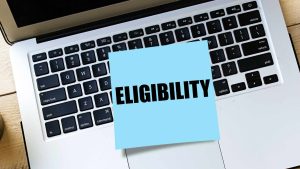Welcome to our blog post on the topic of Employment Allowance Eligibility! If you are a business owner or employer, understanding the intricacies of employment allowances can be crucial for maximizing your financial benefits. This article will explore what employment allowance is, how it is accounted for, and the legislation surrounding its eligibility criteria. We will also delve into the importance of de minimis state aid rules and highlight the benefits and limitations of claiming employment allowance. So, let’s dive in and unravel the mysteries behind employment allowance eligibility!
Definition of Employment Allowance Eligibility

Employment Allowance is a scheme introduced by the UK government to support businesses and encourage them to hire more employees. It provides eligible employers with a reduction in their National Insurance contributions, helping to lower their overall payroll costs. The allowance is currently set at £4,000 per year and can be claimed by most businesses that pay employer Class 1 National Insurance contributions on their employees’ earnings. Let’s explore further how this allowance works and who can qualify for it!
How Do I Account for Employment Allowance?
When it comes to accounting for employment allowance, the process is relatively straightforward. Once you’ve determined that your business meets the eligibility criteria, you can claim the allowance through your payroll software or by adjusting your Employer Payment Summary. Ensure to record and report the amount of employment allowance accurately used each pay period to stay compliant with HMRC regulations. It’s important to consult with an accountant or tax professional if you have any questions about properly accounting for employment allowance.
Importance of De Minimis State Aid rules
The Importance of De Minimis State Aid rules regarding Employment Allowance eligibility must be balanced. These rules determine the maximum amount of state aid a business can receive within a certain timeframe. It ensures fair competition and prevents any company from gaining an unfair advantage. Understanding and adhering to these rules is crucial for businesses claiming the benefits of Employment Allowance.
Legislation Surrounding Employment Allowance
Legislation surrounding Employment Allowance is crucial in determining who can claim this benefit. It provides guidelines and regulations businesses must adhere to when applying for the allowance. Understanding the relevant legislation is essential to ensure compliance and take full advantage of this opportunity. By staying informed about the rules, businesses can confidently navigate the eligibility requirements and effectively use Employment Allowance.
Overview of Relevant Legislation

It is important to know the relevant legislation to understand the eligibility criteria for claiming Employment Allowance. The main legislation surrounding Employment Allowance is Section 4A of the National Insurance Contributions Act 2014. This act outlines the conditions and regulations businesses must adhere to to qualify for this allowance. Employers need to review and understand these rules before making a claim. Stay tuned as we delve deeper into key points and regulations next!
Key Points and Regulations to Consider
Regarding Employment Allowance eligibility, there are key points and regulations to consider. First, the allowance is available to most employers who pay Class 1 National Insurance Contributions (NICs). However, not all businesses are eligible, such as those with only one employee who is also the director. Additionally, it’s important to note that you can only claim Employment Allowance once for your business or connected companies. Understanding these regulations will help ensure compliance when applying for and utilizing Employment Allowance.
Eligibility Criteria for Claiming Employment Allowance

To be eligible for claiming Employment Allowance, you must meet certain criteria. You need to be an employer paying Class 1 National Insurance contributions. Your total employer’s National Insurance liability in the previous tax year should have been below a specified threshold. Only one scheme can claim the allowance if you are part of a group of companies or have multiple PAYE schemes. Make sure to review these eligibility requirements before applying for Employment Allowance.
Benefits of Employment Allowance
- It significantly reduces employer National Insurance contributions.
- Qualifying companies can save money on their wage bill and reinvest those savings into other business areas.
- The allowance is easy to claim and can be done through payroll software or by contacting HM Revenue and Customs directly.
- The Employment Allowance is a valuable business incentive, offering financial relief and supporting growth opportunities.
Limitations of Employment Allowance
- One key limitation is that you cannot claim this allowance if you are your company’s sole director and employee.
- Only one can claim the allowance if multiple companies have the same control or ownership.
- It’s also worth noting that certain types of employment, such as personal or domestic work, do not qualify for this allowance.
Conclusion
Understanding the eligibility criteria for Employment Allowance is crucial for businesses looking to take advantage of this valuable tax relief. Eligible employers can save money by meeting the requirements and following the relevant legislation by reducing their National Insurance contributions.
It’s important to note that while Employment Allowance offers many benefits, there are also limitations. Employers must know these limitations and comply with all regulations to avoid penalties or legal issues.
Employment Allowance allows eligible businesses to reduce their employment costs and invest those savings into their operations. Companies can stimulate growth and contribute positively to the economy by taking advantage of this government initiative.
Suppose your business is eligible for Employment Allowance. In that case, it is recommended that you consult with a tax advisor or HMRC directly to ensure you fully understand the eligibility criteria and how they apply specifically to your situation. They will be able to provide guidance tailored to your business needs and help you navigate through the complexities of claiming this allowance.
Stay informed about employment legislation changes is essential for running a successful business. Keeping up-to-date with developments in taxation can save you money and give you a competitive edge in today’s ever-evolving marketplace.
So take advantage of Employment Allowance if you meet the eligibility criteria—it could make a significant difference in managing your employment costs effectively while supporting growth within your organization!









